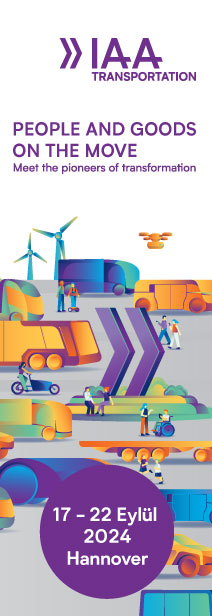Against this background the solutions in the field of filtration have to be just as varied as the types of contamination. In order to protect vehicle occupants the filtration experts at MANN+HUMMEL have come up with FreciousSmart – the intelligent cabin filter system, which continuously ensures the air inside the vehicle is always clean. The company will show its latest developments at the Frankfurt motor show in Hall 8 on Stand D 37.
The challenge with electric vehicles is how to increase their driving range. The heating up and cooling down of ambient air for the air inside the vehicle drains the battery and therefore reduces the amount of energy available to power the vehicle. The intelligent FreciousSmart cabin filter system enables the air conditioning system to be operated mainly in recirculation mode, which saves energy. In this process sensors continuously monitor the quality of the ambient air and the air inside the vehicle. The CO2 concentration, the relative humidity and the concentration of particles are measured inside the vehicle. If, for example, the CO2 exceeds a critical level above 0.1% of the volume, the inflow of ambient air is increased. The ambient air sensor recognizes the degree of contamination of the ambient air with particles and pollutants, decides which filtration quality is required, and determines how much fresh air is to enter the interior of the vehicle.
FreciousSmart has three filtration stages which are used respectively as required by the situation. Under different traffic conditions (such as in a tunnel, traffic jam or normal traffic) the system provides the vehicle occupants with clean air for the lowest possible drain on energy.
When the ambient air quality is good and the system is in recirculation mode, the cabin filter offers effective protection by retaining airborne particles (PM10) from the environment or the inside of the vehicle (e.g. fibers), volatile organic compounds which, for example, can be given off from plastics used inside the vehicle, and allergens and pollens from the environment.
If there is an increased requirement for ambient air and at the same time the ambient air is more contaminated, an additional filter stage is activated.
An ambient air filter retains airborne particles (PM10) and in particular respirable particulate matter (PM2.5). Furthermore, it removes harmful gases such as nitrogen dioxide (NO2), ozone (O3), sulfur compounds and volatile organic compounds such as formaldehyde and ammonia (NH3). Pollens from the ambient air are also retained. If the ambient air is extremely contaminated, for example, in a traffic jam or during travel in tunnels, an additional high efficiency particulate air (HEPA) filter is activated.
The HEPA filter even separates ultra-fine particles, airborne particles which have a size of less than 0.1 of a micrometer, and therefore offers the highest protection against critical ambient air quality. A HEPA filter is, however, expensive. The objective must be to only use it when it is actually needed. Through the intelligent control system and ambient air filter which acts as a pre-filter stage, the service life of the HEPA filter is considerably lengthened. This provides the end consumer, i.e. car driver, with an advantage thanks to a longer service interval.
This new development from MANN+HUMMEL is focused on electric vehicles. There is big potential, especially in Asia. In Asia large conurbations are faced with bad air quality, and, in addition, China is an important market for electric vehicles. This is where FreciousSmart can help towards further improving the awareness that the cabin filter in a vehicle offers effective protection.










